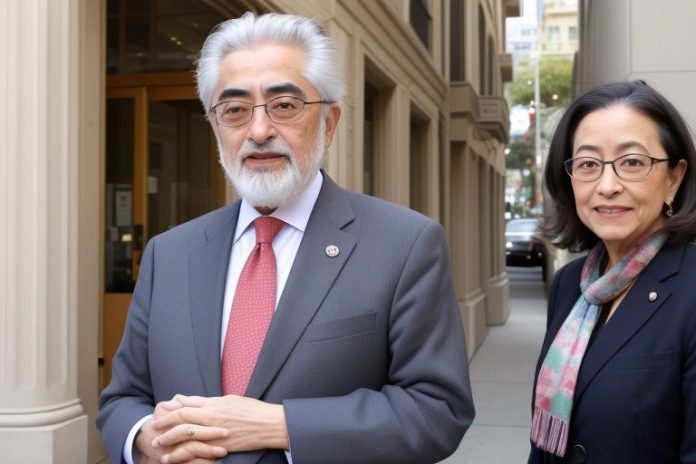The San Francisco mayoral primary is heating up as progressive candidate Aaron Peskin comes under increasing scrutiny for his part in the city’s ongoing crises. Despite this, Peskin is an eight-term incumbent on the Board of Supervisors and has been accused of worsening San Francisco’s housing and economic woes by moderate Democrats and businesspeople alike.
TogetherSF Action co-founder and well-known venture capitalist Michael Moritz has become one of the harshest critics of Peskin’s approach to running a city. In a recent opinion piece, Moritz argued that Peskin’s progressive policies have hindered the city’s ability to address its most pressing issues, particularly in the realm of housing development and economic growth.
The acknowledged progressive Elmira Peskin entered San Francisco politics more than two decades ago and has gained experience in every post. His supporters welcomed his determination to keep the city’s character intact and prevent the losses of homes and businesses. However, his opponents stated that he failed to support the projects aimed improving the economical situation, on the contrary, he was against different projects of development, and increased taxes to businesses harmed the economical growth and made the shortage of houses worse.
The mayoral race has been turned into a struggle between two different visions that orchestrate the future of San Francisco. Moderate candidates like Mark Farrell are riding in on the sheriff’s coattails as the antithesis of the progressive incumbent and pledge to build more housing, solve homelessness, and improve the business climate.
The debate over San Francisco’s direction has taken on national significance, with some Republicans using the city’s challenges as a talking point against Democratic presidential hopeful Kamala Harris. But as Moritz and others have noted, Harris moved to Los Angeles over a decade ago and is far more moderate than the present progressive leadership of San Francisco.
The choice in November is regarded as that special day for San Francisco. The voters will be given a chance to decide whether the city should follow the progressive nature of the problems it faces or the moderate approach to solving them. Whoever wins this election can spell the difference in the future direction of the Democratic Party in terms of urban politics across the United States of America.
This housing crisis remains one of the most important topics in the upcoming mayoral election. Like many other cities in the USA, San Francisco has always been in the forefront of areas with ballooning cost for real estate and shortage of housing that is affordable. Peskin has been accused of playing a part in the fight against new housing developments, and for supporting measures that some would say have made the construction of new homes in the city even harder.
Another two areas of importance when it comes to the issues that make the city of San Francisco are problems with homelessness as well as public safety. There are more homeless people in the city than before, and many people get bothered by the little improvement being done to eradicate the problem. Instead of campaigning, candidates are actively proposing solutions for addressing homelessness that vary from investing in more access points to permanent supportive housing to increasing bans on camping.
Towards the end of the election campaign, people of San Francisco are struggling to answer more questions about the future of their city. Issues of progressive versus moderate policies are important to assess the strengths of the Democratic Party and the prospects of urban development in focalized years of the 21st century.
Therefore, people of at least San Francisco and possibly more areas around the country will be waiting to see who will become the next mayor of its office. As one of America’s most prominent and influential cities, San Francisco’s political direction could have ripple effects far beyond the Bay Area. Analyzing the election results might help to find out how the internal processes of the Democratic Party are developing and what future the urban politics of America has.
In the upcoming weeks, campaigning is going to heat up, which means candidates will struggle to convince the public. So much is on the line, voters will likely pay close attention to the San Francisco mayoral election, including choosing one of several candidates they believe is the most qualified of all. The findings will have implications not only for the development of this remarkable city but also have implications for the nation’s ongoing debate on progressive politics and city administration.

